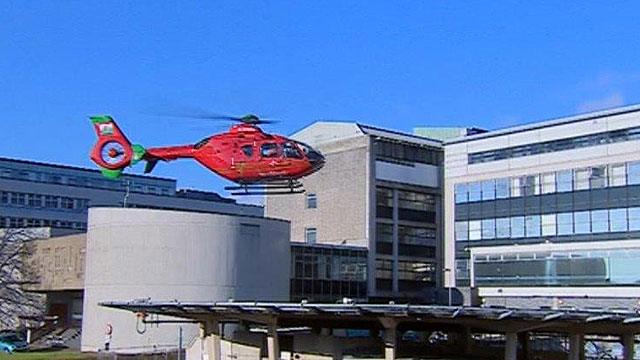'Flying doctors' service extended to cover north Wales
- Published
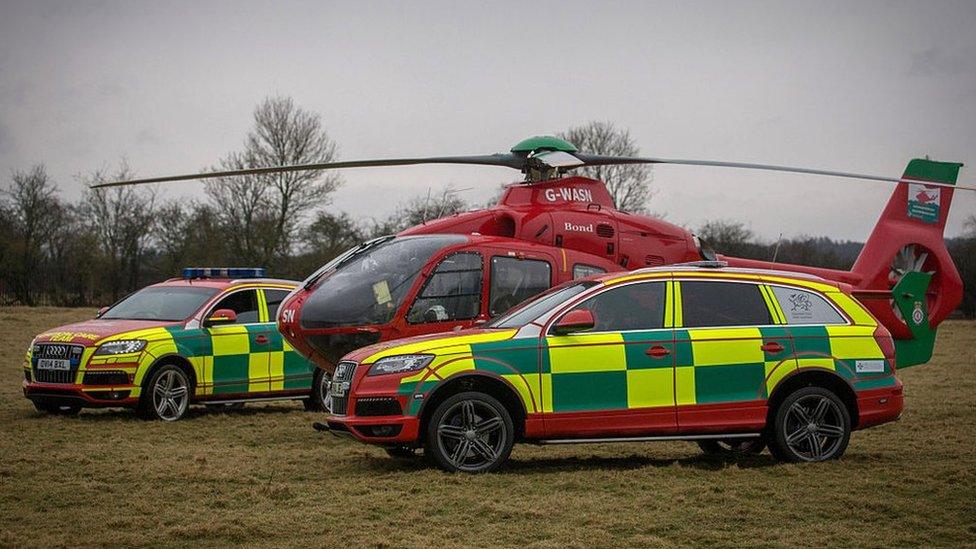
The Wales Air Ambulance service has had doctors on board since 2015
Specialist doctors are to join Wales Air Ambulance crews in north Wales for the first time in a bid to treat seriously injured patients faster.
The "flying medics" will be based at Caernarfon Airport, along with a new helicopter and rapid response vehicle.
South and mid Wales have had the Emergency Medical Retrieval and Transfer Service Cymru, external since 2015 and it will launch in the north on Monday.
The health secretary said it would bring critical care closer to people.
Vaughan Gething added that enhancing the existing service from Caernarfon would ensure the region had the same emergency cover as the rest of Wales.
'Innovative equipment'
The Wales Air Ambulance (WAA) helicopters were originally staffed by paramedics.
But two years ago, emergency department consultants were recruited to be on board.
It meant they were able to give casualties blood transfusions, administer anaesthetics, offer strong painkillers and conduct a range of medical procedures not normally performed outside of a hospital - all at the scene of an incident.
Two "flying medics" helicopters are already based at Dafen in Carmarthenshire and in Welshpool, Powys.
Dr Ami Jones, EMRTS Cymru interim national director, said the new service would improve cover for north Wales, as well as Powys and parts of Ceredigion.
"Wales can pride itself on having established platinum-standard critical care across all of the country, via the WAA's bases in north, mid and south Wales," she said.

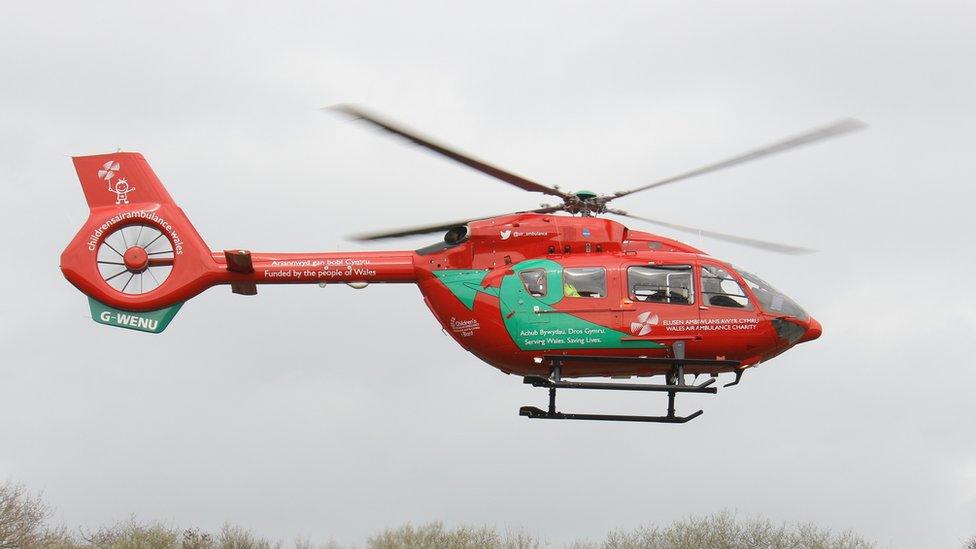
An independent evaluation by the Farr Institute at Swansea University revealed the Welsh flying medics service has already had a positive impact on critical care in Wales.
Results indicated:
The time taken for somebody who is critically ill to receive consultant-led treatment has shortened.
More people in Wales now have equal access to consultant-led treatment during an emergency incident.
The service has relieved some pressure on frontline NHS emergency services.
It has improved the time it takes for certain patients to be taken for a CT scan or emergency surgery.
- Published7 April 2017

- Published14 June 2016
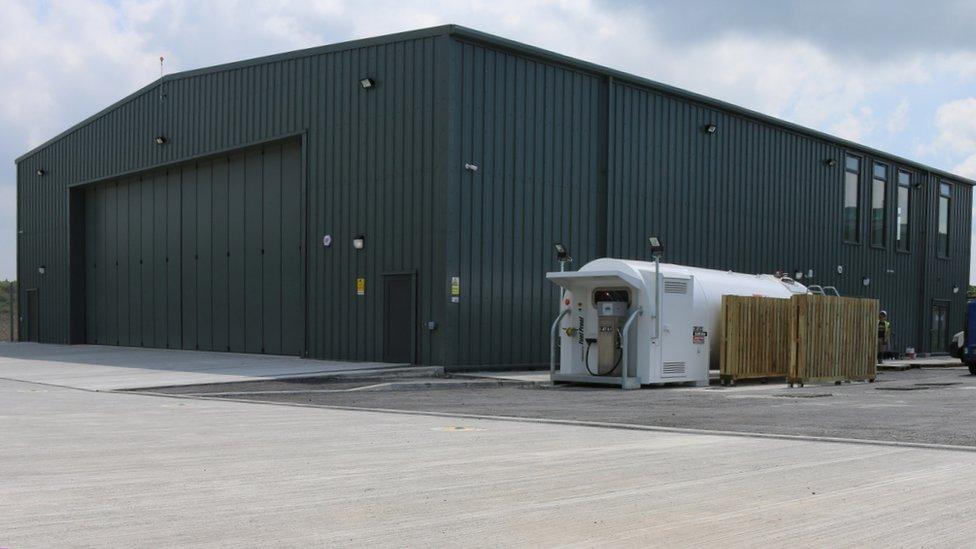
- Published2 August 2016
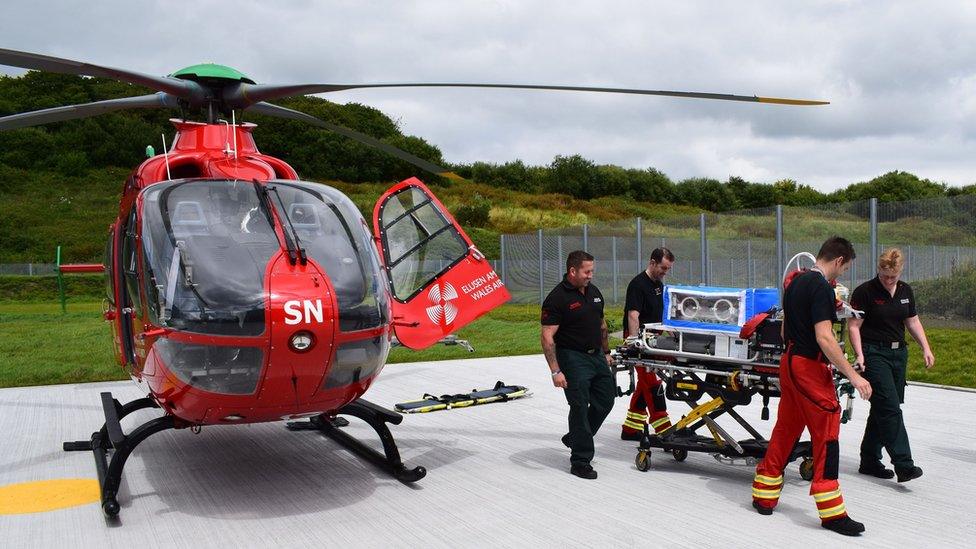
- Published16 March 2015
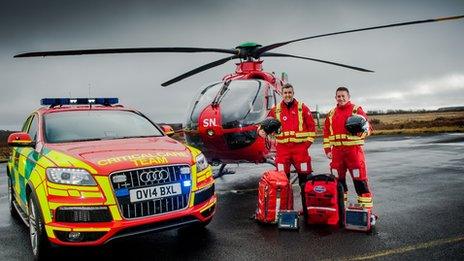
- Published16 March 2015
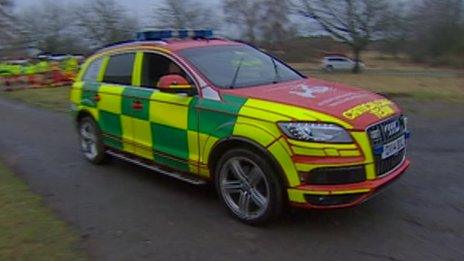
- Published2 November 2014
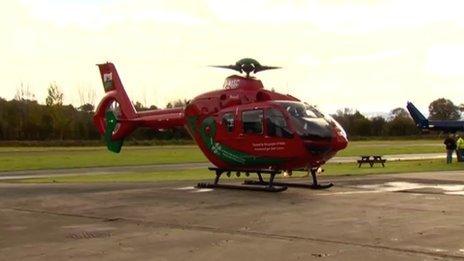
- Published29 September 2014
